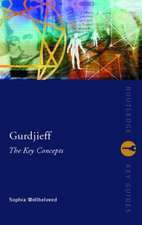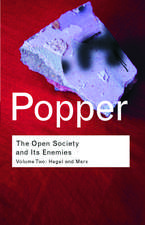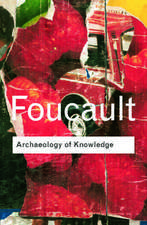Mind in Action: Experience and Embodied Cognition in Pragmatism: Studies in Applied Philosophy, Epistemology and Rational Ethics, cartea 18
Autor Pentti Määttänenen Limba Engleză Hardback – 21 apr 2015
| Toate formatele și edițiile | Preț | Express |
|---|---|---|
| Paperback (1) | 377.35 lei 6-8 săpt. | |
| Springer International Publishing – 6 oct 2016 | 377.35 lei 6-8 săpt. | |
| Hardback (1) | 384.48 lei 6-8 săpt. | |
| Springer International Publishing – 21 apr 2015 | 384.48 lei 6-8 săpt. |
Din seria Studies in Applied Philosophy, Epistemology and Rational Ethics
- 20%
 Preț: 603.89 lei
Preț: 603.89 lei -
 Preț: 397.59 lei
Preț: 397.59 lei -
 Preț: 359.53 lei
Preț: 359.53 lei - 20%
 Preț: 989.96 lei
Preț: 989.96 lei - 24%
 Preț: 787.48 lei
Preț: 787.48 lei -
 Preț: 390.08 lei
Preț: 390.08 lei -
 Preț: 370.88 lei
Preț: 370.88 lei - 15%
 Preț: 641.20 lei
Preț: 641.20 lei - 20%
 Preț: 991.60 lei
Preț: 991.60 lei - 20%
 Preț: 646.95 lei
Preț: 646.95 lei - 15%
 Preț: 653.98 lei
Preț: 653.98 lei -
 Preț: 395.47 lei
Preț: 395.47 lei - 18%
 Preț: 1216.95 lei
Preț: 1216.95 lei - 18%
 Preț: 947.50 lei
Preț: 947.50 lei -
 Preț: 388.72 lei
Preț: 388.72 lei -
 Preț: 390.08 lei
Preț: 390.08 lei -
 Preț: 395.09 lei
Preț: 395.09 lei -
 Preț: 394.12 lei
Preț: 394.12 lei - 15%
 Preț: 644.82 lei
Preț: 644.82 lei - 15%
 Preț: 698.15 lei
Preț: 698.15 lei - 18%
 Preț: 1840.91 lei
Preț: 1840.91 lei - 20%
 Preț: 656.84 lei
Preț: 656.84 lei -
 Preț: 389.70 lei
Preț: 389.70 lei - 20%
 Preț: 991.46 lei
Preț: 991.46 lei - 15%
 Preț: 585.73 lei
Preț: 585.73 lei - 15%
 Preț: 711.40 lei
Preț: 711.40 lei - 15%
 Preț: 589.33 lei
Preț: 589.33 lei - 15%
 Preț: 700.42 lei
Preț: 700.42 lei
Preț: 384.48 lei
Nou
Puncte Express: 577
Preț estimativ în valută:
73.57€ • 77.02$ • 60.87£
73.57€ • 77.02$ • 60.87£
Carte tipărită la comandă
Livrare economică 07-21 aprilie
Preluare comenzi: 021 569.72.76
Specificații
ISBN-13: 9783319176222
ISBN-10: 3319176226
Pagini: 94
Ilustrații: XII, 94 p. 1 illus.
Dimensiuni: 155 x 235 x 13 mm
Greutate: 0.33 kg
Ediția:2015
Editura: Springer International Publishing
Colecția Springer
Seria Studies in Applied Philosophy, Epistemology and Rational Ethics
Locul publicării:Cham, Switzerland
ISBN-10: 3319176226
Pagini: 94
Ilustrații: XII, 94 p. 1 illus.
Dimensiuni: 155 x 235 x 13 mm
Greutate: 0.33 kg
Ediția:2015
Editura: Springer International Publishing
Colecția Springer
Seria Studies in Applied Philosophy, Epistemology and Rational Ethics
Locul publicării:Cham, Switzerland
Public țintă
ResearchCuprins
Introduction: Challenging Classical Dichotomies.- Philosophical Naturalism.- Experience and the Object of Knowledge.- Habit of Action.- Habits as Meanings.- Mind and Interaction .- Facts and Values in Pragmatism.- Mind in Action and the Problem of Realism.
Textul de pe ultima copertă
The book questions two key dichotomies: that of the apparent and real, and that of the internal and external. This leads to revised notions of the structure of experience and the object of knowledge. Our world is experienced as possibilities of action, and to know is to know what to do. A further consequence is that the mind is best considered as a property of organisms’ interactions with their environment. The unit of analysis is the loop of action and perception, and the central concept is the notion of habit of action, which provides the embodied basis of cognition as the anticipation of action. This holds for non-linguistic tacit meanings as well as for linguistic meanings. Habit of action is a teleological notion and thus opens a possibility for defining intentionality and normativity in terms of the soft naturalism adopted in the book. The mind is embodied, and this embodiment determines our physical perspective on the world. Our sensory organs and other instruments give us instrumental access to the world, and this access is epistemic in character. The distinction between the physical and conceptual viewpoint allows us to define truth as the correspondence with operational fit. This embodied epistemic truth is however not a sign of antirealism, as the instrumentally accessed theoretical objects are precisely those objects that experimental science deals with.
Caracteristici
Examines the consequences of re-evaluating the dichotomies of apparent and real, and that of the internal and external Discusses the notion of habit of action as vehicle of knowing Gives an analysis of mind as a property of organism environment interaction Shows the connection between facts and values in naturalism Includes supplementary material: sn.pub/extras



















